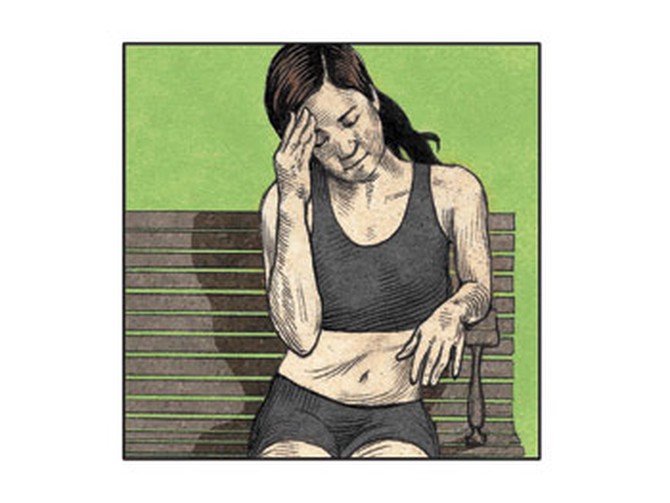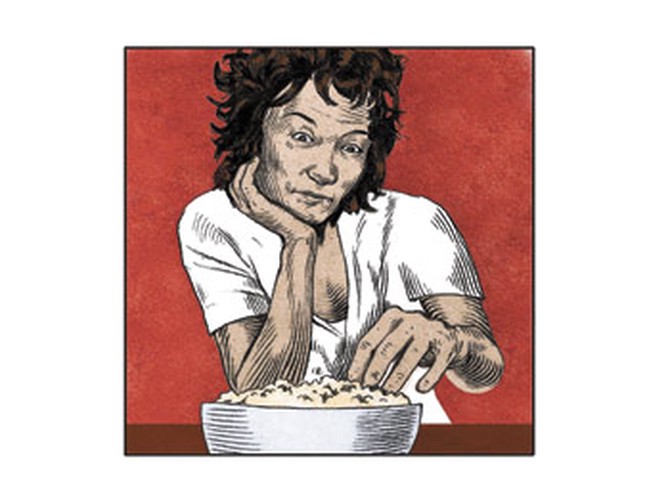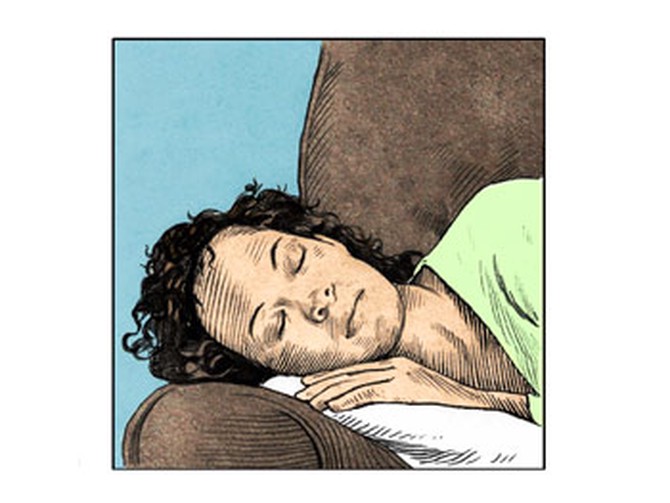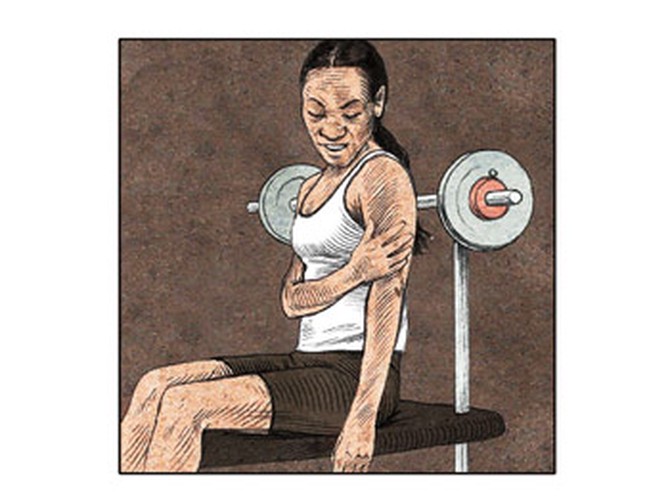What Is Your Body Telling You?

If Your Energy Has Evaporated...
Q: Should you skip your workout or not?
A: Unless your fatigue is accompanied by some sign of illness (such as a fever) or injury, exercise will help you ditch the lack of energy. A recent University of Georgia study found that when persistently tired men and women exercised 20 minutes a day, three days a week for six weeks, they reduced their fatigue by half and, in a separate measurement, boosted energy by 20 percent compared with their nonexercising peers. "Exercise releases chemicals that jump-start parts of the brain associated with energy and fatigue," says study author Tim Puetz, exercise scientist and researcher. "A regular exercise program could potentially 'rewire' these brain areas over time, leading to reduced feelings of fatigue and a permanently 'charged battery.'"
A: Unless your fatigue is accompanied by some sign of illness (such as a fever) or injury, exercise will help you ditch the lack of energy. A recent University of Georgia study found that when persistently tired men and women exercised 20 minutes a day, three days a week for six weeks, they reduced their fatigue by half and, in a separate measurement, boosted energy by 20 percent compared with their nonexercising peers. "Exercise releases chemicals that jump-start parts of the brain associated with energy and fatigue," says study author Tim Puetz, exercise scientist and researcher. "A regular exercise program could potentially 'rewire' these brain areas over time, leading to reduced feelings of fatigue and a permanently 'charged battery.'"

If You're Hungry, but You're Minding Your Weight...
Q: Steel your resolve, or eat something to head off a binge later?
A: If you ate a meal three to five hours earlier, have a 100- to 200-calorie snack, says Linda Spangle, author of 100 Days of Weight Loss. That's about 10 percent of your daily calorie intake and just enough to boost blood sugar and help prevent overdoing it at your next meal. Before you start eating, however, be sure you have rumbling in your belly, not just boredom on the brain. "You need to train yourself to recognize true hunger signals—growling stomach, fatigue, slight headache. When you feel those signals, it is time to eat. If you ate within the last two hours but are staring at the refrigerator, go do something else for 10 minutes and see if you still feel hungry."
A: If you ate a meal three to five hours earlier, have a 100- to 200-calorie snack, says Linda Spangle, author of 100 Days of Weight Loss. That's about 10 percent of your daily calorie intake and just enough to boost blood sugar and help prevent overdoing it at your next meal. Before you start eating, however, be sure you have rumbling in your belly, not just boredom on the brain. "You need to train yourself to recognize true hunger signals—growling stomach, fatigue, slight headache. When you feel those signals, it is time to eat. If you ate within the last two hours but are staring at the refrigerator, go do something else for 10 minutes and see if you still feel hungry."

If You're Feeling Very, Very Sleepy...
Q: Nap, or drink a macchiato, pronto?
A: Both. "Caffeine is a great stimulant, but it works best prophylactically," says Scott Campbell, PhD, director of the Laboratory of Human Chronobiology at Weill Cornell Medical College. "Once you're really tired, caffeine won't do much for you." A nap, however, refreshes your brain. In a study of 32 men and women, Campbell found that people who napped performed better on complex tests, not only immediately afterward but also on the following day. And happily, napping didn't disrupt nighttime sleep. To get the most from your nap, first drink a cup of coffee, then sleep for no more than 30 minutes. You'll be waking up just as your body is processing the caffeine and will be raring to go.
A: Both. "Caffeine is a great stimulant, but it works best prophylactically," says Scott Campbell, PhD, director of the Laboratory of Human Chronobiology at Weill Cornell Medical College. "Once you're really tired, caffeine won't do much for you." A nap, however, refreshes your brain. In a study of 32 men and women, Campbell found that people who napped performed better on complex tests, not only immediately afterward but also on the following day. And happily, napping didn't disrupt nighttime sleep. To get the most from your nap, first drink a cup of coffee, then sleep for no more than 30 minutes. You'll be waking up just as your body is processing the caffeine and will be raring to go.

If Your Last Workout Left You with Sore Muscles...
Q: Stay as still as possible, or get moving?
A: When it comes to exercise, a little bit of what ails you will indeed make you better. "A hard workout causes muscle breakdown at the cellular level," explains Andrew Pruitt, director of the Boulder Center for Sports Medicine in Colorado. "The quickest way to heal those sore, damaged muscles is to move them, which increases blood flow and delivers nutrients where you need them." Gentle movement such as walking is a great form of active recovery. But any easy exercise will work, Pruitt says. "You'll not only heal faster but also burn more calories than if you just sat around."
— Selene Yeager
A: When it comes to exercise, a little bit of what ails you will indeed make you better. "A hard workout causes muscle breakdown at the cellular level," explains Andrew Pruitt, director of the Boulder Center for Sports Medicine in Colorado. "The quickest way to heal those sore, damaged muscles is to move them, which increases blood flow and delivers nutrients where you need them." Gentle movement such as walking is a great form of active recovery. But any easy exercise will work, Pruitt says. "You'll not only heal faster but also burn more calories than if you just sat around."
— Selene Yeager
From the November 2008 issue of O, The Oprah Magazine

